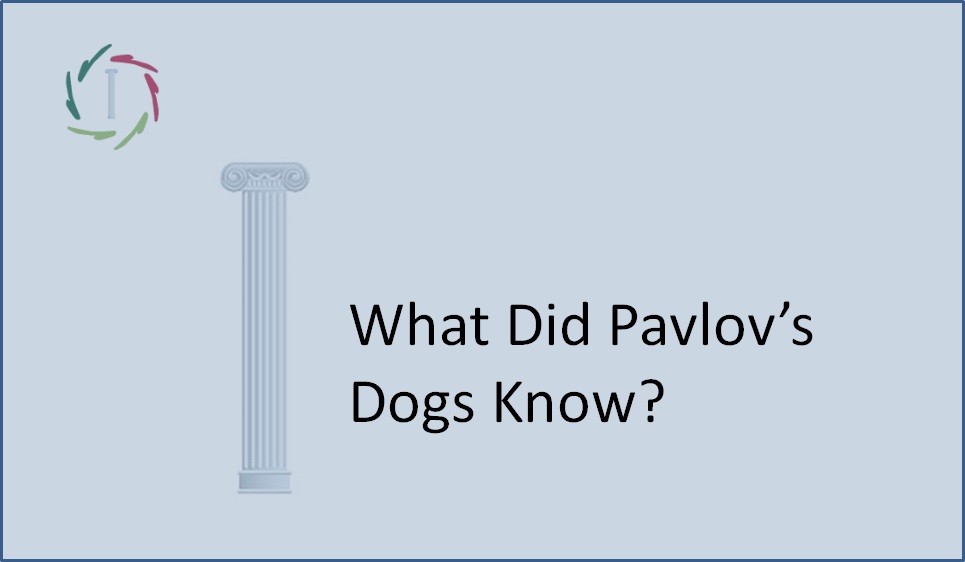12. What Did Pavlov’s Dogs Know?

Who was being conditioned: the dogs or Pavlov?
The premise of conditioning
Conditioning counts on a simple perspective upon the unconscious, as a collection of mental reflex-arcs. A kind of black box between Stimulus and Response which is hardly worth the effort to be opened. So, in the world of conditioning, one does not bother. One does not look. The result is that people get the idea that there is really nothing to see.
In this way, the unconscious is a no-man’s-land. Empirical Stimulus/Response observations are casted in ‘laws of conditioning’. The consistency of these laws is seen as an additional argument to speak of non-intelligent reflex-arcs.
In principle, this works also the other way around of course. Suppose (a thought-experiment) that the unconscious knows very well what it wants and that it is very intelligent. In that case it will respond, of course, in a very consistent way. Certainly in accordance with the simplicity of Stimuli that are usually used in experiments. Seen from the unconscious, the thinking of the experimenter rather is a simple reflex-arc: one sends him a well thought out Response and hop, he is going to fit this thought into his simple premise, without seeing whether something else is the matter.
Premises can be fun to go home in time, after a day of experiments.
However, they can also stand in the way for the appreciation of real emotions, for example those of the dog that comes running up joyfully when the owner comes home in the evening.
Does a dog ‘understand’ the message of a bell?
Pavlov gave his dogs food along with the sound of a bell. After a while the dogs started to dribble at the sound of the bell. This is seen as a classical conditioning reflex. In the meantime, the dogs were thinking. They expected food at the sound of the bell. Seeing food and hearing the bell had meaning to the dogs. Not food and bell caused the functioning of the salivary glands, but the meanings of food and bell did.
Pavlov assumed that the meaning of these meanings was negligible. Meanwhile, the dogs learned that when they were letting themselves go in the sense of food/sound of the bell (including salivation) they made Pavlov happy and they could inspire him to bring them a nice steak every now and then. On which side can you find ‘the simple reflexes’ then? According to me, on neither side.
Meaning for the entire domain
From an experimental point of view, the black box processing of (part of) the psyche is interesting. It leads to facts and new questions and to a progress of science. Still, it is better to not declare a premise as being a part of reality. At best, it provides an interesting view on reality. It is also a fact that a premise in itself is not a part of experimental science. It precedes experimental science. Mistakes are dangerous here, especially when one is applying the result to people afterwards. For example, in pedagogy, psychotherapy, sociology, …
In casu, it is about a severe reduction that is imposed on children and people in need, while communicating.
Should one rather restrict the human psychological complexity in the pursuit to well-being, so it doesn’t have the opportunity to go a little crazy or to create danger? Or should one rather ensure greater freedom that, if it does not become excessively ego-matic, is quite able to take care of itself? In other words: do we choose for reduction or for expansion? This is about a principled choice that has to be made time and again; probably the most principled choice in the entire domain of psychosomatics. It is therefore a choice that should actually be insisted, in one way or another, upon each patient/client. And more.
It’s a choice that determines the direction of an entire culture,
which challenges one will meet, which human misery one may expect. Is this important enough?


